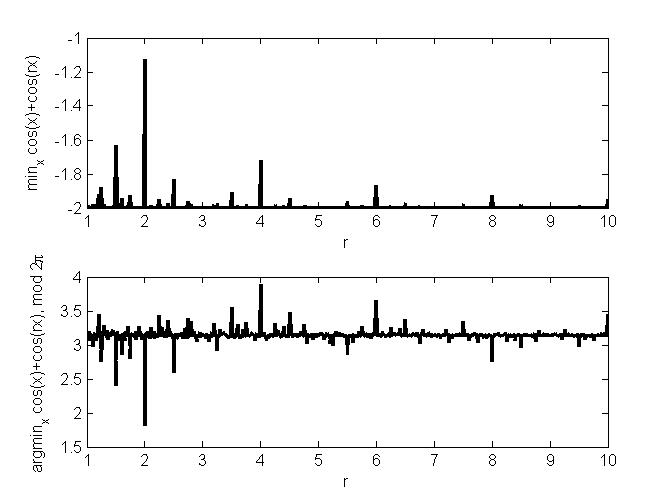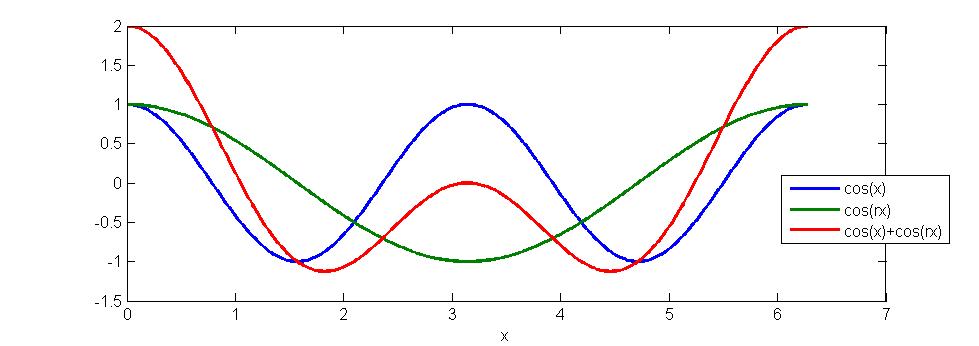Please prove (or disprove, and give the correct answer):
$$2 =\mathrm{argmax}_{r\geq 1}\min_{x\in \mathbb{R}}\left[\cos\left(x\right)+\cos\left(rx\right)\right] $$
In other words, find $r \geq 1$, for which the minimum (over $x$) of $\cos(x)+\cos(rx)$ is the largest. Or rather, prove that this $r$ is 2.
Background: I'm getting this result from a numerical scan

Also, it makes sense intuitively, since by drawing two cosines and trying to align them, this seems like a good configuration to get a high minimum

However, I cannot find a way to prove this. You can also easily show that the required points are not saddle points of the function $f(x,r)=\cos(x)+\cos(rx)$ (the only extremum points are on $x=\pi k$, $r$ integer, and they are all maxima), and instead they must occur for the values of $r$ for which you get two equal global minima. This sounds as a very strange coincidence in the general case. That's why I feel like there has to be some simple symmetry argument that can solve this. Am I missing something obvious (or not so obvious)?
Bonus question:
$$?=\mathrm{argmax}_{\bf r\in \mathbb{R}^N_+}\min_{x\in \mathbb{R}}\left[\sum_{i=1}^N \cos\left(r_i x\right)\right]$$
Thanks in advance!
Note: This question was duplicated from math SE, since I did not get an answer.
